Meghalaya Man Earns Lakhs With Aloe Vera, Builds Roads & Toilets For his Village
Without a college degree, the opportunity of getting a proper job had become slim. But he persevered.
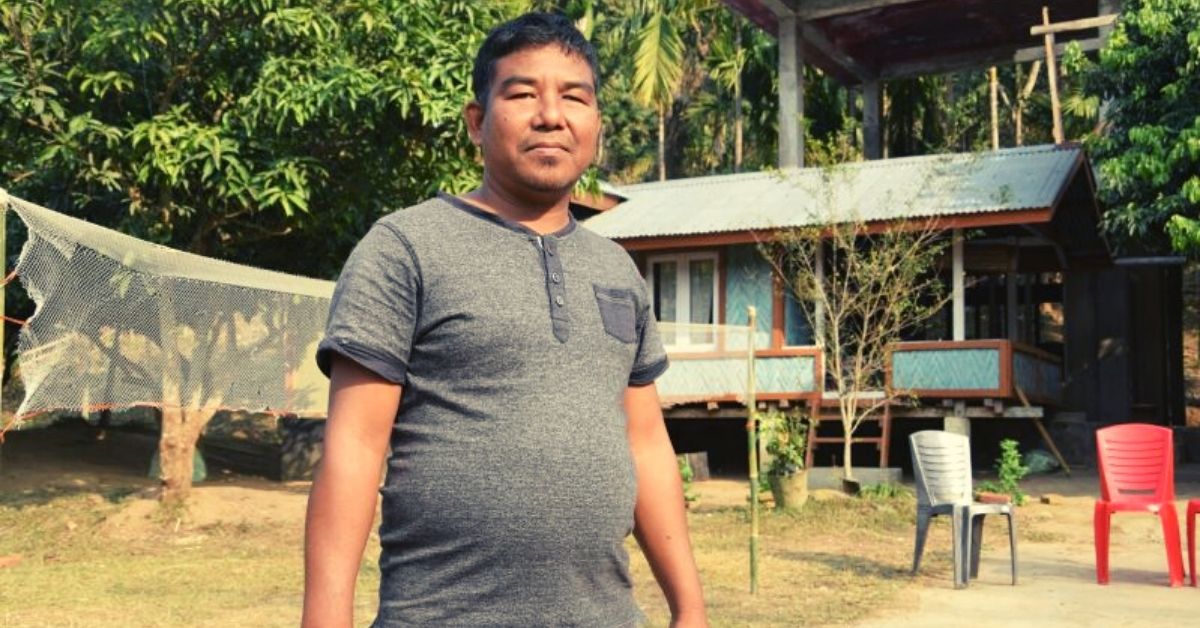
“It is never the fortunate incidents that define a person’s life, but the unfortunate ones that bring about a change. So, every time my life took a wrong turn, it pushed me to work harder and make it right,” says 49-year-old Layland Marak from Ganolgre village, West Garo Hills, Meghalaya.
A farming enthusiast, an entrepreneur, community leader, teacher and father, this man has played many roles in his life; but the one of a student is the most precious among them.
“I was not born in a rich family. My parents were poor farmers supporting seven kids including me. Things were already difficult, but it got worse after they both passed away in an accident. From then on life was always a tough lesson that I had to master, so education was the only way out,” he says.
Layland not only went on to become one of the first entrepreneurs of a social enterprise, but also helped his entire community under the Rongram Community and Rural Development (C&RD) Block to earn a better livelihood than the environmentally devastating practices of farming like shifting cultivation, rampant in the region.
With the aid of a Self Help Group (SHG) called Chizingjang, he set up a unique business of the processing and sale of aloe vera products in 2008, which not only helped some villagers find alternative and more lucrative employment, but also contributed to the infrastructural development of the village.
Perseverance is the key
After the accident of his parents, Layland moved to Williamnagar to live with some relatives, while his siblings went elsewhere to whichever relative offered to foster them. As a way of battling his circumstances, he immersed himself into educational pursuits and excelled at school. After completing his board exams with flying colours, he enrolled in college for a Bachelor of Arts (BA) degree.
Things were looking up for him until another crisis struck. Just before his second year final examinations, he was hospitalised for an eye disease and underwent a surgery owing to which he missed an entire year. Not willing to give up yet, he tried again next year, but his eyesight only deteriorated and eventually he discontinued his higher studies.
Without a college degree, the opportunity of getting a proper job had become slim but he continued to persevere and eventually secured a position of an assistant teacher at Jengjal Primary School, West Garo Hills in 1995.
“My first job as a teacher was quite fulfilling as I could help so many kids learn and dream big,” says Layland who supported the education of two of his sisters for almost five years, until they finally found employment. But after getting married in 2000, his ambition grew from being a teacher to a grassroots changemaker, and that’s when he decided to serve his community.
Discovering Aloe Vera
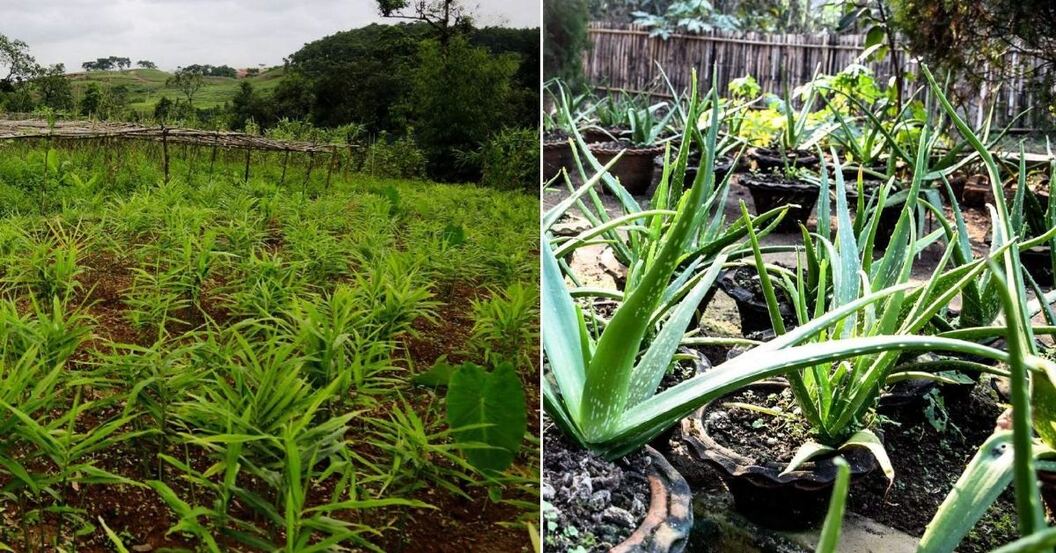
A tropical plant that is said to be native to parts of south-west Arabian Peninsula, aloe vera is now grown across the world, especially for its health benefits, which range from being a source of vitamins and antioxidants to easing skin conditions like psoriasis, etc.
In 2006, the North Eastern Region Community Resource Management Project for Upland Areas (NERCOMP) funded by the International Fund for Agricultural Development (IFAD), organised a two-day training on aloe vera cultivation and processing.
By that time, Layland had already spent four years building the Self Help Group as a member, and a community organiser under the Natural Resource Management Group (NaRM-G). Through various efforts, including the setting up of a transportation business to ferry passengers between Asanang and Tura, were carried out by the SHG but discontinued due to low profit margins.
From completing bookkeeping training at the Ganolgre Community Hall, to livestock management training from Tura, Layland had tried a number of ways to drive change in the community. Although he was responsible for a number of community activities along with a team of 78 members, there was a lot more he wanted to do. It was then that NERCOMP introduced them to the wonders of aloe vera and its scope for business.
“The 2006 training was quite an eye opener as most of us had no idea about such a cultivation. Six months later, we got some 40,000 saplings from Karnataka’s Aloe Vera Training Institute. We planted them but had to put the project on hold because of lack of technical expertise,” he says. This was not a setback, but just a temporary roadblock he overcame in the next two years.
He began attending various workshops organized by IFAD, both within and outside the state, and then sharing his knowledge with other members of the community as well as the SHG. He encouraged many more to learn technical skills of cultivating aloe vera and manufacturing its products. In 2012, he was even invited to train farmers at the Senapati district of Manipur, and then again at Raipur, Chhattisgarh.
Wave of Change
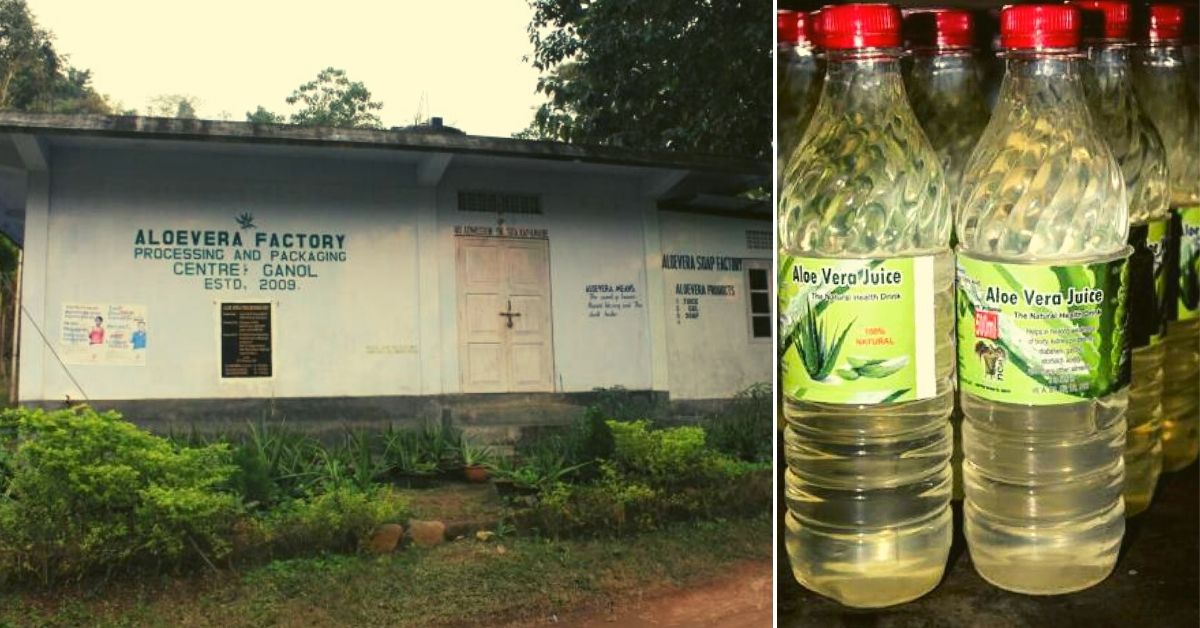
Finally, with his efforts, in 2009, a new aloe vera processing factory was set up by the deputy commissioner of West Garo Hills. Layland, with the aid of a rural development scheme called Swarnajayanti Gram Swarojgar Yojana (SGSY) under the District Rural Development Agency (DRDA) and the Government of India, set up the facility with an array of machinery such as juicers, gel extractors, cutting equipment, filling and sealing machines, soap processing machines etc. A part of the NERCOMP project, while IFAD contributed 10 percent towards the building of the processing unit, the village community contributed 30 percent towards the infrastructure. The remaining was covered by the scheme.
From soaps to gels, a variety of products was being processed in the factory and sold, both from there and at a store called Durama Cave in Tura Supermarket. During summers, when the growth of aloe vera is accelerated, the factory would manufacture more than 500 bottles of juice, 500 bottles of aloe vera gel and over 500 pieces of soap every single day.
With more awareness about the benefits of aloe vera, their customer base began to increase, helping them earn profits in laks. The annual revenue of the SHG was nearly Rs 7,00,000 initially, slowly increasing to a profit of Rs 20,00,000 in 2019.
As a way of giving back to the community, he then used a part of this income to develop the village’s infrastructure like setting up of culverts, roads and building public and private toilets etc. He made sure every single of the 76 households in the village of 497 people had access to proper toilets.
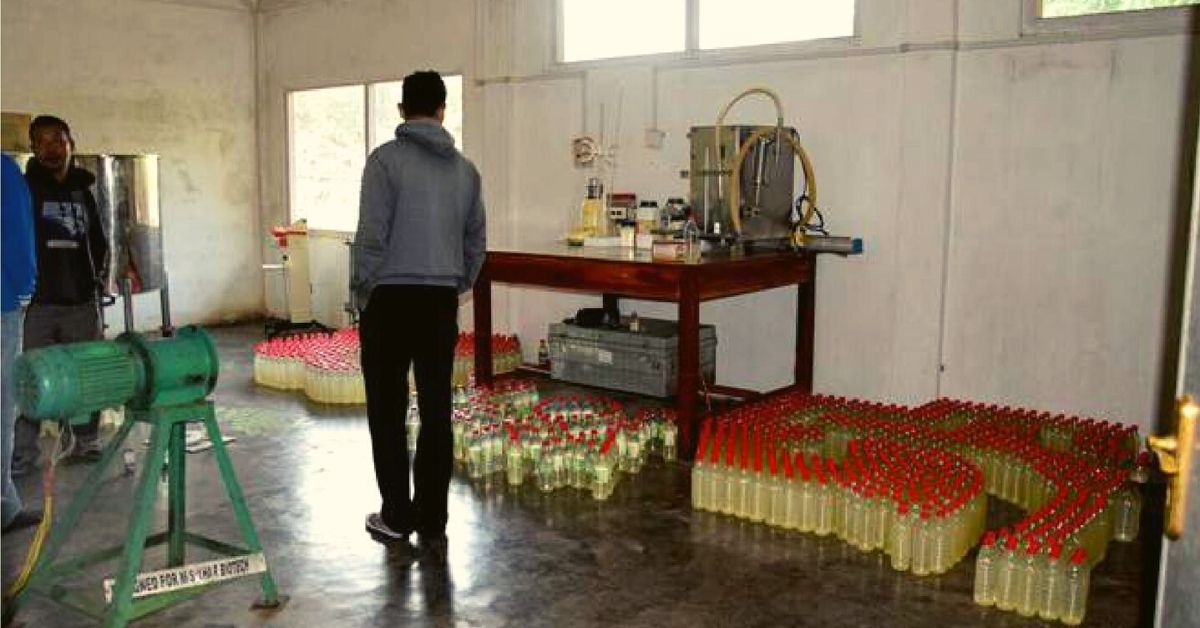
Owing to his success, in 2016, he was recognized by the North Eastern Regional Agricultural Marketing Corporation Limited (NERAMAC) as an emerging changemaker and a promising organic founder in the state.
However, in spite of the great results and impact, in 2020, the work came to a standstill. While the tropical plant did grow well in the area, the raw material to make the products had to be outsourced from Kolkata and Ahmedabad at an expensive rate. While this arrangement had worked for the past 10 years, this year their resources were exhausted and the situation worsened during the pandemic. Even the packaging coming from Siliguri, Guwahati and Kolkata had become more expensive.
“While operational challenges were there, the natural limitations made things worse. Even during the monsoons, the factory underwent a lot of load shedding that slowed the production process. Plus, the machinery had to undergo maintenance, which was another expensive affair. On top of it, a few community members who were not a part of the SHG began to create discord, and slowly things fell apart and we had to shut it down. The money was great when it was coming but without external help, we cannot restart this business,” he adds.
Sitaram Prasad, the institutional development officer at NERCOMP sheds more light into the current situation. “Owing to the successful model implemented by Layland, we replicated it in more than 20 villages in the neighbouring areas. But over time, the challenges of lack of marketing and reduced capital resources owing to COVID-19, brought most of the work to a halt. We are trying to mobilize our efforts to revive this industry that has impacted thousands of lives here. Meanwhile, several other training programs around livestock and organic farming are also underway to help the villagers sustain,” says Sitaram.
“Never give up”
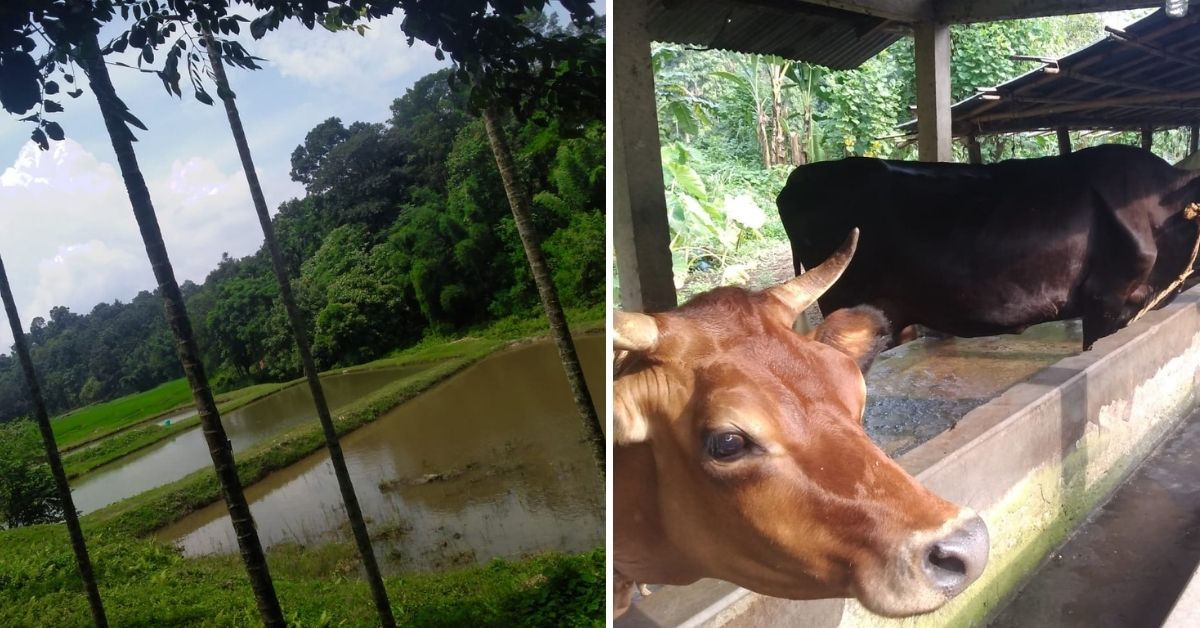
Despite the huge setback, Layland’s efforts have not dwindled even a bit. While he hopes that in a post-pandemic world, he will be able to restart the aloe vera business and regain the positive cycle of profit and social development, he continues to work on training the community on sustainable alternatives such as livestock rearing, organic farming and fishery.
“I have approached the fisheries department in Tura to help us with this training programme as an alternative livelihood for the community. I have also set up my own livestock venture with four jersey cows that produce around eight litres of milk every day. I am using a part of income from there to revitalise the SHG and I hope things will soon get back to good times again,” adds Layland.
A father of four children — one daughter and three boys — Layland dreams to give his children the opportunity of a higher education he once had to miss due to circumstances. But, above all, he hopes that once equipped with the education they give back to the community and continue his legacy.
“The very point of education is to bring about change and I hope my children pursue careers where they will be able to help their community. In my own capacity, I am trying to open more avenues of training in agriculture, horticulture and livestock in the village and hope more people start replicating it so that with time we all can usher in a substantial positive change,” he concludes.
Edited by Gayatri Mishra
If you found our stories insightful, informative, or even just enjoyable, we invite you to consider making a voluntary payment to support the work we do at The Better India. Your contribution helps us continue producing quality content that educates, inspires, and drives positive change.
Choose one of the payment options below for your contribution-
By paying for the stories you value, you directly contribute to sustaining our efforts focused on making a difference in the world. Together, let’s ensure that impactful stories continue to be told and shared, enriching lives and communities alike.
Thank you for your support. Here are some frequently asked questions you might find helpful to know why you are contributing?


This story made me
-
97
-
121
-
89
-
167











